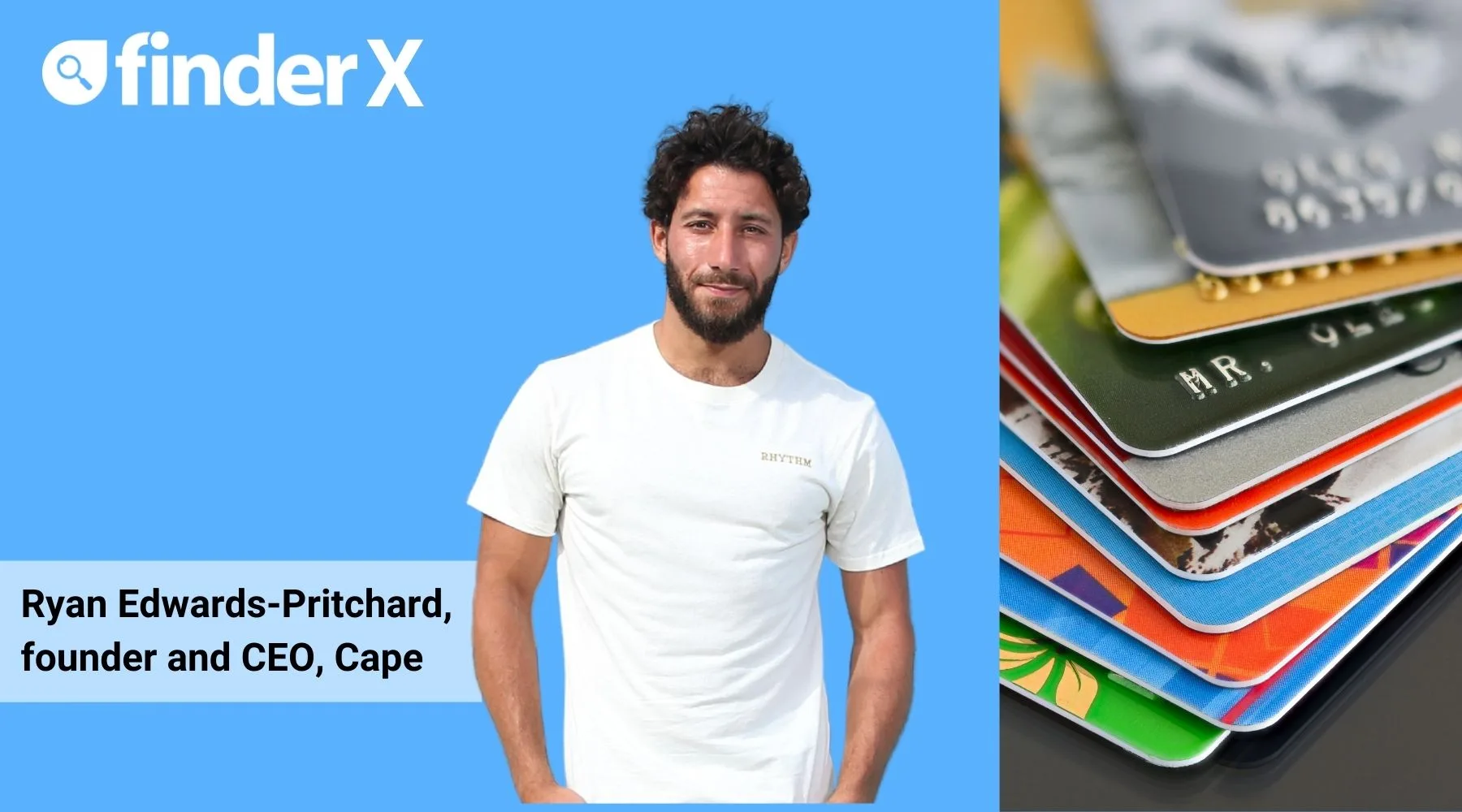9 tips for founders I learned from launching a startup in a pandemic

Building a startup is hard work. It's even harder when you're in the grips of a pandemic. Here's what I've learned so far.
Well, what a year it's been, folks. As we take a breather to wind down for the holidays and thank the universe 2021 is over, I started reflecting on what a difficult and tiring period it's been for us all, especially for those of us embarking on the relentless path of entrepreneurship or betting on ourselves in business.
Cape's time has just begun, but already I've learned 9 vital lessons that I wanted to share. At many points throughout this journey, I have wondered if I was alone with these issues. If anyone else is feeling the same way, I want you to know you're most definitely not.
1. The person who holds the pen... tackles imposter syndrome
First of all, huge congrats! You've taken the plunge and essentially just picked a new job. I knew going into both a new space in expense management and a totally new geography in Australia would be a challenge. But I also felt unworthy.
How exactly would I feel trying to build a startup as an outsider when my background had been in business credit products in Europe?
Well, I focused on what I was good at: self-development, reading, learning and personal growth.
I found that writing a newsletter and recording a podcast were the perfect new habits to focus on because they helped me do the following:
- Every month, these habits forced me to read and write about the latest news from the industry and local ecosystem impacting our customers.
- Every month, I committed to recording an episode with the unsung operators and heroes of some of Australia's most loved startups. It was to see what I could learn while also talking about stories that need to be heard and creating content that gives us credibility.
- Every month, I'd build on my audience, get feedback and become trusted over time.
Habits take time to build, but the results are compounding. My imposter syndrome is still there, but throwing myself into learning everything I can about my new sector focus and local market is slowly helping me get over it.
2. Never waste a good crisis
Opportunities are created in times of crisis. Volatile markets can steer focus toward high-impact partnerships, resource sharing and mergers and acquisitions (M&A). Opportunities to acquire and consolidate are never stronger than in a vulnerable market.
Look for opportunities to acquire top-tier talent and strengthen your position when many companies are downsizing. Focus on strengthening your brand's reputation and building customer and employee loyalty for the future.
Being adaptable and pivoting are terms often used to describe successful founder behaviour, and my ability to display those has been tested repeatedly.
From product and pricing to macroeconomic factors and everything in between, we've had to adapt to constant change, particularly around factors outside of our control.
Expect the unexpected, and look for the opportunity.
3. Build something that matters
Don't offer a product; put your energy towards building something that makes a difference.
It means being flexible and responding to forces outside of your control. If something doesn't work, re-evaluate then make changes. Never lose sight of the end goal to solve a real problem.
Recognise that there are 2 things that will determine your success: the quality of your decisions and luck. You need to determine between those 2 as you craft the art and science of taking asymmetric risks.
At 1 point, we needed to re-platform and move from Angular to React. We had started to build a good product, but we had to shift to our stack so that we could build a platform able to solve the actual problems with expense management that businesses have.
4. Build in public
Building in public and sharing my deeper insecurities through writing often leads to a greater sense of accountability to do better. It keeps me honest.
There are a lot of steps on the journey to launching a new product or startup. Mistakes are an important part of the process to go through and problem-solve as a team.
While I'll make many more, I hope those who follow Cape stay patient as we strive to do our best. We're building out our expense management platform brick by brick until every business puts how they spend at the top of their minds.
5. Create ecosystems to work with your team remotely
The success of your business has always hinged on how you go about forming your structure, financing and scaling a startup. Now it depends on your ability to do that remotely. And a key indicator of your success is how well you attract talent in this environment.
In building our founding team, I needed to face our limitations of being both bootstrapped and stuck in a lockdown, in a new country, with no network to lean into for support.
Fortunately, over the years, I'd built a great network of friends from the fintech industry. In a pandemic where we've all moved to remote work, I was able to call upon a lot of familiar faces for support with building out our foundations – mostly as a side hustle to their full-time roles in return for sweat equity.
With a team of part-timers and contributors involved, keeping everyone abreast of major funding milestones has been paramount so that we can transition individuals onto our payroll at the nearest opportunity. This is why we were incredibly happy to welcome back on board our original advisory CTO, Steve Martin, into a full-time frontend architect role recently.
6. Normalise being vulnerable
Mental health challenges are on a steep incline globally. With less time spent in real life and more time spent scrolling, the world needs less faux perfection and more reality.
We need to normalise openly discussing when we've had bad days or are dealing with stress, burnout, anxiety and depression.
Human beings are flawed, and beautifully so in a variety of ways. But we shouldn't present ourselves as anything but that. It risks making others feel like they're not good enough.
Founders, creators and entrepreneurs alike, we have the power to change the culture by having honest conversations.
Normalise being open to talking about your personal experiences with mental health with your colleagues without fear of judgement.
Do you talk about your mental health at work? These conversations need to be led from the top. As a CEO or founder, make it clear to your team that your company culture will never penalise those who share their mental health status.
7. Focus on building fire stations, not wielding a fire extinguisher
In my last startup, I was guilty of trying to be across everything. Instead of helping, it created a huge bottleneck as we scaled to 100 people. It's not scalable and is a sure way to hit burnout. Not a badge of honour you want.
This time, I'm focused on doing things differently.
This is why we've taken a transparency-by-default approach and even made one of our company values "Ban the BS". We want everyone to have the full context they need to do an amazing job independently.
We're focused on scaling quickly by ensuring everyone at Cape is able to behave like a leader.
8. Know that one person's trash is another person's treasure
After culture, my next biggest responsibility is ensuring I place my team in roles that energise them. How we spend our time is incredibly important.
It reflects in our ability to be productive and to deliver results. But if you're stuck in a situation where you're not fired up in what you do, meeting expectations can be a huge challenge.
Real teamwork is about supporting your colleagues and filling in the gaps. If you excel where they are weak, then support them and vice-versa. Staying aware of that and consistently recalibrating complementary roles is how we can build an invincible Cape.
9. FAIL = For All I've Learned
Failure. There are so many powerful associations with that word.
But it's just that – a word.
In the past, I've been guilty of beating myself up for not getting through my to-do list or not getting a feature right. I felt like I'd "failed" to complete tasks that I'd set myself. What have I learned this year?
We're never going to get anything perfect the first time around (we're only human, right?).
At Cape, failure isn't really a concept we engage with. Every time we try something new, we have the opportunity to learn and grow. We even made a video celebrating all our failed test transactions before finally making our first successful payment.
Building a healthy startup is a priority for any team. It's vital to have a picture of what that looks like. For us, it means less politics and confusion, higher morale and productivity, low employee turnover and lower recruiting costs.
Being a founder is bloody hard. But the team that's providing their time, emotional investment, cognitive bandwidth and their passion to join you on the mission makes it all worthwhile.
Godspeed.
Photo credit: The CEO Magazine awards event.
Ryan Edwards-Pritchard is the founder and CEO of Cape, an expense management platform issuing corporate cards designed to help businesses automate accounting and lower costs.
Disclaimer: The views and opinions expressed in this article (which may be subject to change without notice) are solely those of the author and do not necessarily reflect those of Finder and its employees. The information contained in this article is not intended to be and does not constitute financial advice, investment advice, trading advice or any other advice or recommendation of any sort. Neither the author nor Finder has taken into account your personal circumstances. You should seek professional advice before making any further decisions based on this information.
Read more Finder X columns
-
All the big savings account interest rate rises: ING, AMP, Westpac + more
6 Feb 2026 |
-
Australian credit card debt soars 10% in a year: How can you escape the trap?
6 Feb 2026 |
-
4 cashback home loan offers to ease the pain of RBA rate hike
4 Feb 2026 |
-
Finder’s RBA Survey: Easing cycle ends as RBA delivers first rate hike since 2023
4 Feb 2026 |
-
Ubank Save is increasing its bonus rate up to 5.35% p.a.
3 Feb 2026 |
Ask a question

